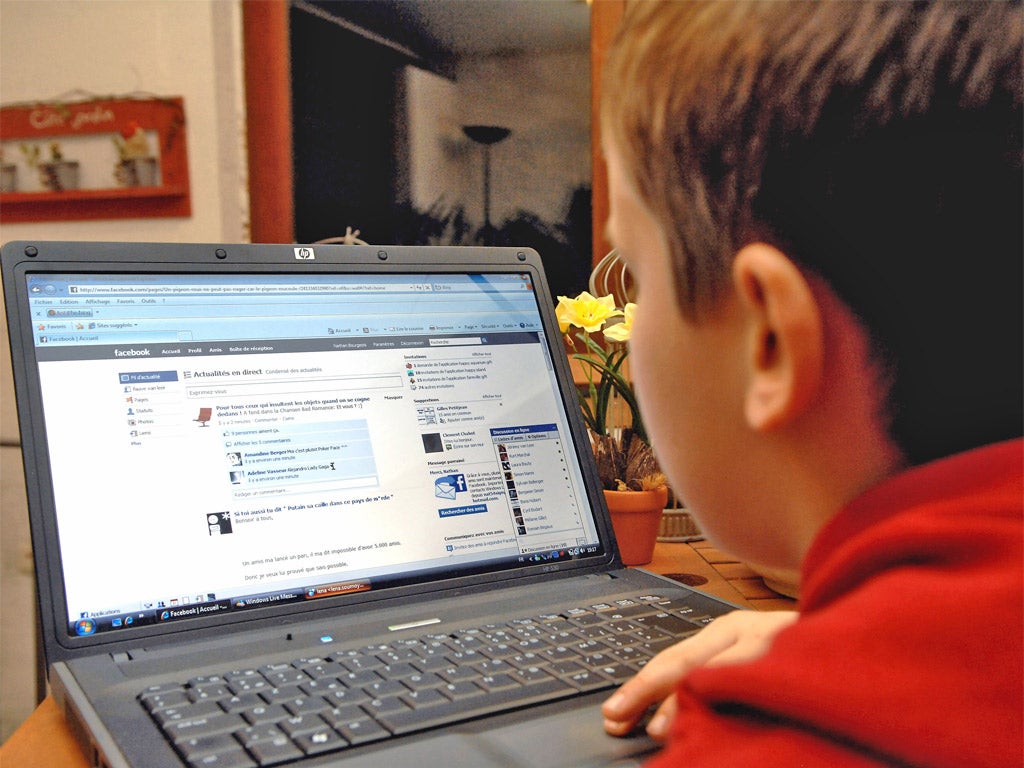Take the Jane Austen approach and the online world isn’t so terrifying
We have spent the past decade having the wrong conversations

Your support helps us to tell the story
From reproductive rights to climate change to Big Tech, The Independent is on the ground when the story is developing. Whether it's investigating the financials of Elon Musk's pro-Trump PAC or producing our latest documentary, 'The A Word', which shines a light on the American women fighting for reproductive rights, we know how important it is to parse out the facts from the messaging.
At such a critical moment in US history, we need reporters on the ground. Your donation allows us to keep sending journalists to speak to both sides of the story.
The Independent is trusted by Americans across the entire political spectrum. And unlike many other quality news outlets, we choose not to lock Americans out of our reporting and analysis with paywalls. We believe quality journalism should be available to everyone, paid for by those who can afford it.
Your support makes all the difference.Jane Austen would have known what to do about internet safety, despite having been born 200 years before the web was invented.
Austen’s subject matter is judgement; her novels are about how to behave when your emotions and your intelligence are under attack. Her characters have to learn to understand and manage their desires, appreciate why other people are behaving foolishly or badly, and develop the resilience to withstand their snares and cruelty.
Jane Austen doesn’t loom large in discussions of internet safety; but a conference this week will suggest this is partly because we have spent the past decade having the wrong conversations. Research from the Oxford Institute and The Parent Zone, to be released at a conference on Digital Families this week, will demonstrate how lacking our approach has been.
Even the most ardent libertarian would be hard pressed to argue that we shouldn’t at least wonder whether sexting, trolling, cyberbullying, porn, extremist violence and grooming, not to mention the loss of privacy and the collection of data, are adversely affecting children and young people.
In 2008, clinical psychologist Tanya Byron produced an influential review of the effects of the internet on children for the then Labour government. It made three recommendations for keeping children safe online: restricting the availability of harmful material; managing children’s access; and (accepting that it is impossible to stop children accessing unwanted content altogether) building their resilience.
The first two have had no shortage of attention. Filters and parental controls have become the norm. This month Tesco launched its Hudl 2 family tablet with the sales pitch that it comes pre-loaded with a child-safety app, allowing parents to control access to the web and limit the amount of time spent on the device. All of which is great for young children. But older children only have to go round to their friends’ houses or into the street to look at someone else’s tablet or mobile.
Filters also raise the threat of overblocking, preventing young people from accessing sites that might help them deal, for example, with anxieties about their sexuality or suicidal feelings. And there is some evidence that successful blocking can lead young people – by nature curious and rebellious – to seek out even worse stuff on the dark net, accessed via proxy servers that their parents may not even know exist.
If filters are problematic, monitoring access is a can of worms. Internet Matters, the safety website set up by the four UK broadband providers, recommends keeping “the family computer in a communal area such as the living room or kitchen”. The idea of the family computer now seems almost charmingly quaint: last week, Ofcom reported more than a third of children aged five to 15 have their own tablet.
It is, of course, good parenting to be interested in what your children do and see online. But EU Kids Online, the research project led by the London School of Economics’s Sonia Livingstone, shows British youngsters are not only the most monitored and protected online of any in Europe but also the least creative and confident. If you keep telling kids it’s dangerous, it stands to reason that they’re going to be wary. And the evidence keeps piling up. Last week, new guidance from the Royal College of Psychiatrists warned the parents of young people who are self-harming not to conduct surveillance of their online activities on the grounds that this kind of monitoring is counter-productive.
The third of Tanya Byron’s recommendations, meanwhile, has been largely overlooked, probably because building resilience sounds vaguer and trickier than writing a bit of blocking code. Yet, as technology takes over our lives so that children no longer distinguish between online and offline, it turns out to be the most important strategy of all. If you have a child with an eating disorder, the chances are she’ll be fuelling that on pro-anorexia websites and forums. If you are to have any hope of dealing with it, you have to deal with it in the round.
This is both good news and bad news for parents. Bad, because it’s hard work: it demands daily, thoughtful, personal engagement by millions of people, balancing control and permission, authority and unconditional love. Good, because parents are already doing it. Developing children’s values and judgement, their empathy and discernment in relationships and their respect for others is what parents do day in, day out.
The online world isn’t so terrifying. If only we can do some more of all that.
Digital Families 2014 will take place at Microsoft London on Wednesday. Geraldine Bedell is an author and researcher specialising in families.
Join our commenting forum
Join thought-provoking conversations, follow other Independent readers and see their replies
Comments